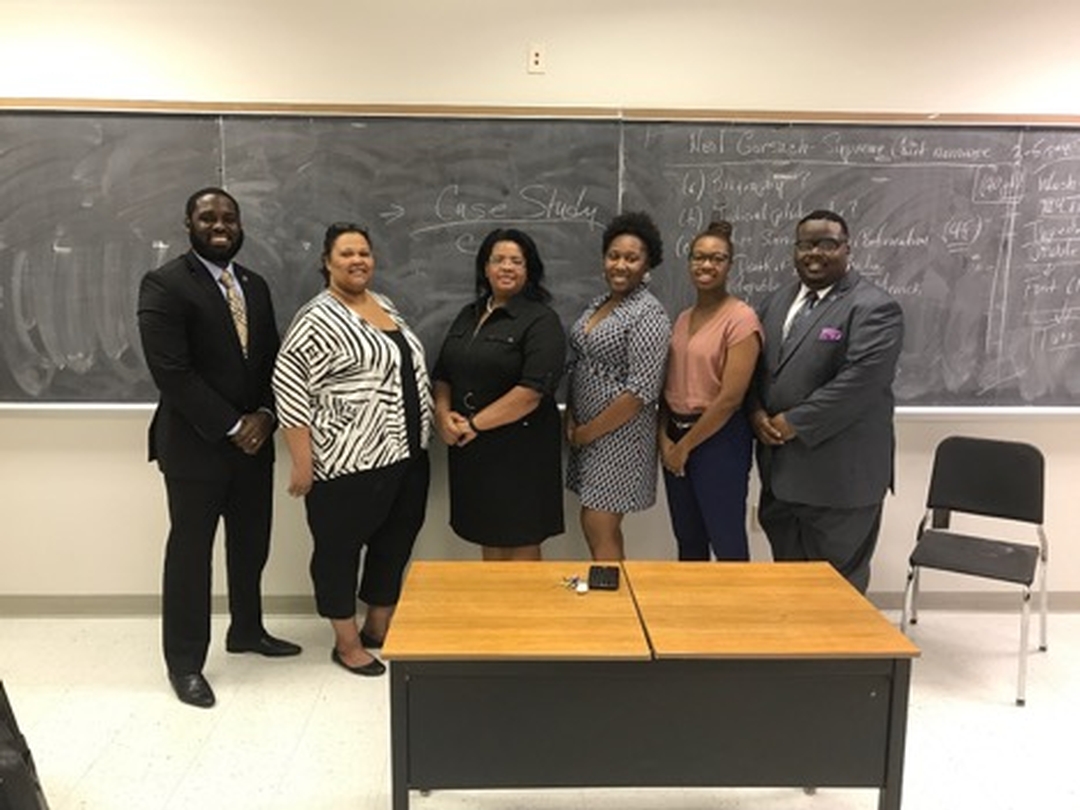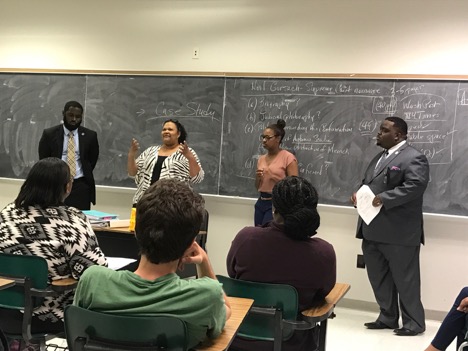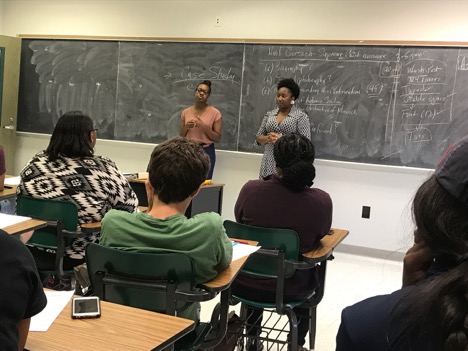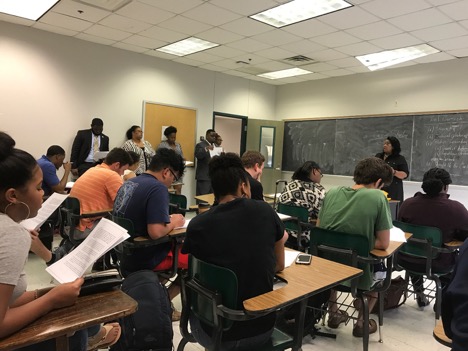Law Center News
Prof. Bell’s Class Uses Restorative Justice Law to Fulfill SULC’s Mission

On March 27, 2017, Professor Bell and her Law & Minorities students presented to a combined audience of law students and undergraduate students enrolled in Judge John Michael Guidry’s Introduction to Law class. Professor Bell told the audience that “restorative justice is a theory of justice that emphasizes repairing the harm caused by criminal behavior and one that is best accomplished through cooperative processes that include all stakeholders.” Prof. Bell shared her heartfelt belief that restorative justice “can lead to transformation of people, relationships and communities” and is, therefore, quite useful in society. Thereafter, the law students showcased how, through team projects, they have employed restorative justice principles this semester.
The first team spoke of the unsolved Civil Rights Era murders of Leonard Brown and Denver Smith in 1972 on the campus of Southern University. Law students Danielle Bickham and Jasmine Fields-Francois recalled how?through interviews, court cases, archival footage, official records, reports and other sources?investigative research is done in the course. The team then told how their efforts culminated into a formal request for posthumous, honorary degrees for these slain students. Subsequently, in April 2017, the team’s written request received a favorable vote from the Southern University Board of Supervisors. These honorary degrees will be conferred at the university’s commencement on May 12, 2017. Devin Fields, S. Lamar Gardner and Robin Winn also worked on this team project.
Jasmine Fields-Francois unveiled a fascinating story about a free black man of color in Louisiana who owned land and whose death and property transfers have remained shrouded in suspicion in his family since the early 1900’s. She told of her adventures exploring dated laws and death and property records and she spoke with great pride as she shared what she had learned about the free blacks of color, a population of Louisiana blacks who did not experience slavery and who enjoyed limited rights and freedoms while slavery was ongoing.
Ryan Thompson, Chandra Johnson, Danielle Bickham and Brandon-Rashad Kenny shared their work on behalf of an elderly man who has languished in prison for reasons seeming to involve Civil Rights Era politics. That team described the range and volume of records and laws they have studied and they discussed many of the interesting interviewed they have conducted before arriving at the decision to utilize international law to achieve restorative justice on his behalf.
In reflection on the Law & Minorities course, Ryan Thompson recalled being told by a close aide to Huey P. Newton, during one of his investigative interviews, that “social change demanded that one ‘put theory into practice.’ The Law & Minorities course afforded me the opportunity to do just that!”
Danielle Bickham expressed gratitude for the opportunity to “investigate non-traditional cases the judicial system may not be able to remedy.” She indicated that she has learned that, in law, “the relevancy of the era plays a critical role in both investigations and judicial outcomes.” Lastly, Ms. Bickham said, “I have learned that sometimes justice is the act of shedding light on an injustice.”
Chandra Johnson said “to know and not act in the face of such undeniable injustices would render us irresponsible. Law and Minorities has changed the way I see myself functioning within the legal system and defined how I will work to make this world a more equitable place.”



